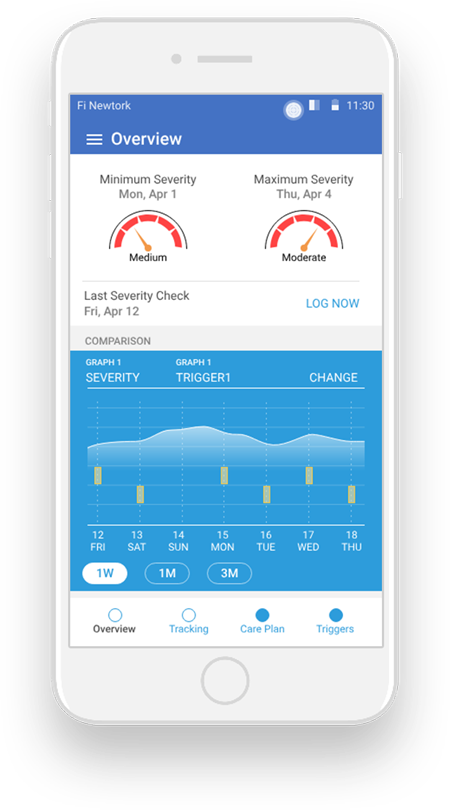How to Relieve Winter Itch: Causes, Symptoms, and Treatment

Winter can be a beautiful season, but it also brings with it an uncomfortable condition known as winter itch. As the temperatures drop and the air becomes dry, many people experience itchy, flaky skin that can lead to irritation and discomfort. In this comprehensive guide, we’ll explore the causes, symptoms, and effective treatments for winter itch, along with preventive measures to keep your skin healthy during the colder months.
What is Winter Itch?
Winter itch, medically referred to as xerotic eczema, is a skin condition characterized by dry, itchy skin that typically worsens in winter. The lack of humidity and the effects of indoor heating can strip the skin of its natural moisture, leading to various uncomfortable symptoms.
What Causes of Winter Itch?
Understanding the underlying causes of winter itch is essential for effective treatment and prevention. Here are the primary factors contributing to this condition:
1. Low Humidity Levels: During winter, outdoor air holds less moisture, which translates to drier skin. This lack of humidity is a major factor in the development of winter itch.
2. Indoor Heating: While central heating keeps us warm, it also reduces indoor humidity, exacerbating skin dryness. The combination of cold air outside and dry air indoors creates a perfect storm for winter itch.
3. Hot Showers: Although a hot shower may feel good in the winter, prolonged exposure to hot water can strip the skin of its natural oils, leading to increased dryness and irritation.
4. Harsh Soaps and Detergents: Many soaps, shampoos, and laundry detergents contain ingredients that can irritate the skin. These products often have harsh chemicals that strip the skin of moisture.
5. Irritating Fabrics: Certain materials, such as wool or synthetic fibers, can irritate sensitive skin, leading to increased itching and discomfort during winter months.
6. Skin Conditions: Individuals with pre-existing skin conditions, such as eczema or psoriasis, may find their symptoms worsen in winter due to the dryness.
Track and Manage your Eczema treatment using a comprehensive Eczema App
Download Eczemaless now
What Are The Common Symptoms of Winter Itch?
Winter itch, or xerotic eczema, presents a range of symptoms that can vary in severity. Here are the common symptoms associated with this condition:
- Dry, Flaky Skin: The skin often appears rough and may have visible flakes, resembling dry patches.
- Intense Itching: One of the hallmark symptoms is a persistent urge to scratch, which can be particularly bothersome at night.
- Redness and Inflammation: Affected areas may become red and inflamed due to irritation and scratching.
- Cracking and Scaling: Severe dryness can lead to cracks in the skin, which may bleed or become painful.
- Rough Texture: The skin may feel coarse or uneven to the touch.
- Sensitive Skin: Affected areas might become more sensitive, reacting to environmental factors like temperature changes or certain fabrics.
- Skin Tightness: Individuals may experience a feeling of tightness or discomfort, especially after bathing or exposure to cold air.
What Are The Treatment Options for Winter Itch?
Finding relief from winter itch involves a combination of moisturizing strategies, lifestyle changes, and potential medical treatments. Here’s a detailed approach:
1. Regular Moisturization
Moisturizers are your best defense against winter itch. Look for thick creams or ointments that contain ingredients such as:
- Ceramides: Help restore the skin barrier.
- Hyaluronic Acid: Draws moisture into the skin.
- Glycerin: A humectant that attracts water.
Apply moisturizer immediately after bathing and throughout the day as needed.
2. Modify Bathing Habits
To minimize skin dryness:
- Opt for lukewarm showers instead of hot ones.
- Limit shower time to 10-15 minutes.
- Use gentle, hydrating cleansers that are free of fragrances and harsh chemicals.
GET IN CONTROL OF YOUR ECZEMA
Use our AI tool to check the severity of Eczema and keep track of your Eczema progress.
3. Increase Humidity
Using a humidifier can significantly improve indoor air quality and moisture levels. Aim to keep indoor humidity levels between 30-50%.
4. Choose Appropriate Clothing
Select soft, breathable fabrics like cotton that are less likely to irritate your skin. Avoid wool and synthetic fibers that can exacerbate itching.
5. Avoid Scratching
While it may be tempting to scratch, doing so can worsen irritation and lead to infections. Keep nails short and consider wearing cotton gloves at night to prevent scratching during sleep.
6. Use Over-the-Counter Remedies
Over-the-counter products can provide relief:
- Antihistamines: Help manage itching, especially at night.
- Hydrocortisone Cream: A mild topical steroid that reduces inflammation and itching.
7. Consult a Dermatologist
If winter itch persists despite home treatments, consult a dermatologist. They may prescribe stronger medications or topical treatments tailored to your specific needs.
Prevention Tips for Winter Itch
Preventing winter itch is often easier than treating it. Here are some effective strategies:
1. Stay Hydrated: Drink plenty of water to help maintain skin hydration from within.
2. Follow a Balanced Diet: Incorporate foods rich in omega-3 fatty acids, such as fatty fish, flaxseeds, and walnuts, to support skin health.
3. Use Gentle Skin Care Products: Opt for fragrance-free and hypoallergenic skincare products to minimize irritation.
4. Maintain a Consistent Moisturizing Routine: Make moisturizing a daily habit, especially after bathing or washing hands.
5. Limit Exposure to Cold Air: When outdoors, cover your skin with warm clothing to protect it from the harsh winter elements.
Conclusion
Winter itch can be a frustrating and uncomfortable condition, but understanding its causes, symptoms, and treatment options can help you find relief. By incorporating effective skincare practices and preventive measures, you can keep your skin healthy and itch-free throughout the winter months. If symptoms persist, don’t hesitate to seek professional advice to ensure your skin receives the care it needs. Embrace the beauty of winter without the discomfort of winter itch!
Track and Manage your Eczema treatment using a comprehensive Eczema App
Download Eczemaless now



